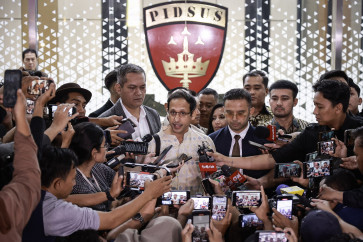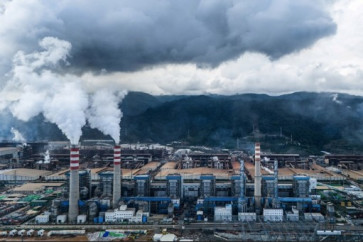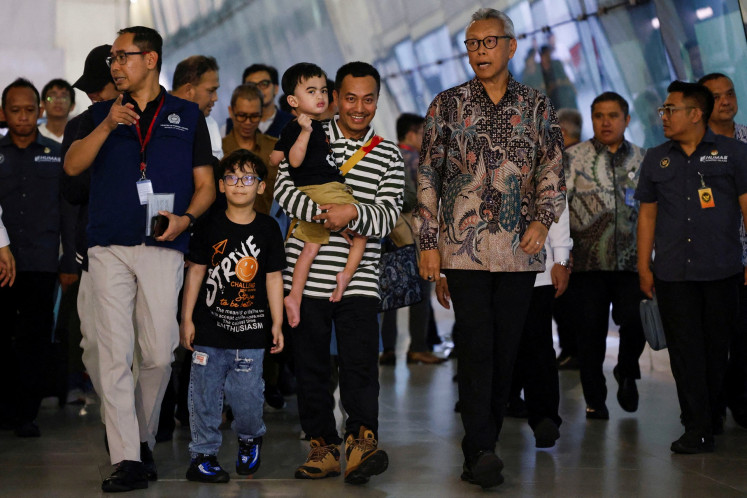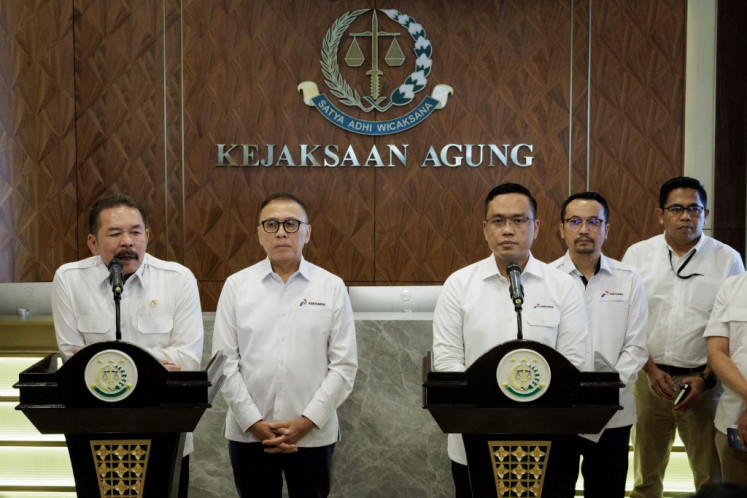Popular Reads
Top Results
Can't find what you're looking for?
View all search resultsPopular Reads
Top Results
Can't find what you're looking for?
View all search resultsEnergy board considers revising 2036 gas export ban
DEN member Satya Widya Yudha said on Thursday that the board was in talks with seven state bodies, including the National Development Planning Agency (Bappenas), on the possible revision.
Change text size
Gift Premium Articles
to Anyone
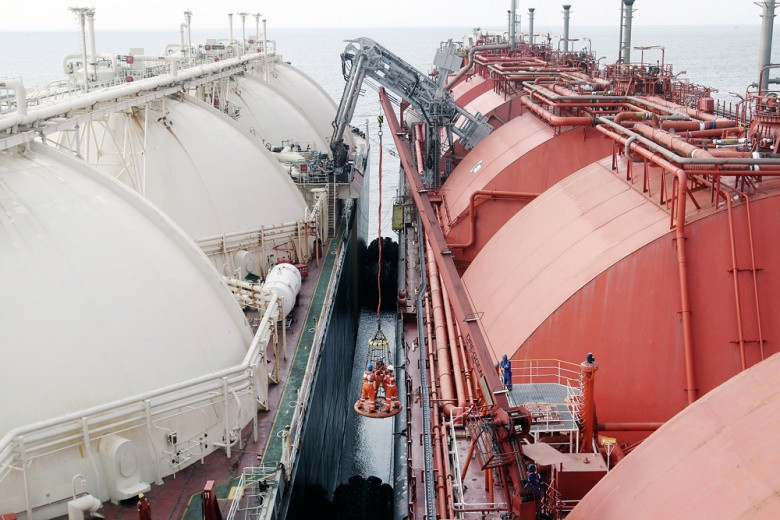
T
he National Energy Board (DEN) is considering changing the country’s 2036 gas export ban in response to low domestic gas consumption.
DEN member Satya Widya Yudha said on Sept. 2 that the board was in talks with seven state bodies, including the National Development Planning Agency (Bappenas), on the possible revision.
Issued in 2017, the National General Energy Planning (RUEN) road map estimates that domestic demand for gas will reach 11.3 billion standard cubic feet per day (bscfd) by 2030, which would be enough for the country to stop exporting gas by 2036.
However, an energy forecast in the proposed National Grand Energy Strategy (GSEN) states that domestic gas demand will reach about 5.2 bscfd by 2030 — half of the earlier projection — partly as a result of lower energy demand during the COVID-19 pandemic.
“It’s very difficult to impose the 2036 export ban if we cannot create [sufficient] domestic market demand,” said Satya during the virtual 45th Indonesian Petroleum Association (IPA) Convention and Exhibition (Convex).
The proposed export ban is an extension of the country’s energy security strategy, which includes using locally produced gas to substitute for imported oil in transportation, power production, industry and cooking.
Assuming domestic gas demand aligns with the GSEN projection and gas production reaches the targeted 12.1 bscfd by 2030, Satya estimated gas exports would rise to 6.9 bscfd from the 1.5 bscfd in 2020.
The Upstream Oil and Gas Special Regulatory Task Force (SKKMigas) formally announced the gas production target early last year, but stakeholders have said that uncertainty over domestic gas market potential will deter oil and gas companies from raising gas output.
“Investors and gas producers [...] need gas demand certainty, especially in the electricity, industry and transportation sectors,” said Satya.
State-owned electricity company PLN corporate planning director Evy Haryadi acknowledged that despite a projected increase in gas consumption for power generation, the figure was still not as high as estimated in the RUEN.
Power generation, he said, was expected to rise 50 percent to 547 trillion British thermal units (BTU) by 2030 from 364 trillion BTU in 2021.
“There has been a decrease in the demand for electricity and power systems, which has affected gas demand,” Evy said.
Budiman Parhusip, president director at Pertamina Hulu Energi, oil and gas upstream subsidiary of state-owned oil and gas giant PT Pertamina, said that market certainty was critical for companies to formulate field development and exploration plans.
If the market’s ability to absorb gas production was considered insufficient, he added, plans to stop gas exports by 2036 needed to be evaluated.
“We should monitor Indonesia’s market potential in the meantime,” he said.
Oil, gas remain crucial
Energy and Mineral Resources Minister Arifin Tasrif said on Sept. 1 that the government was currently devising the GSEN including several goals such as increasing oil and gas production and reducing carbon emissions.
“A measured transition process is necessary, and the oil and gas sector remains of strategic importance in this [transition],” he said during the IPA Convex.
The government aims to reduce oil imports through various measures, including greater reliance on the country’s abundant natural gas resources for domestic use and pushing electric vehicle (EV) adoption.
The upstream oil and gas industry drove the national economy and encouraged the emergence of other economic activity, Arifin claimed.
As of July, the oil and gas sector contributed most to nontax state revenue (PNBP) at Rp 47.58 trillion (US$3.3 billion), 57.22 percent of the total Rp 83.14 trillion PNBP from the energy and mineral resources sector.
Putra Adhiguna of the Institute for Energy Economics and Financial Analysis (IEEFA) said the strategic role of the domestic oil industry was primarily to alleviate the country’s dependence on imports to satisfy domestic fuel consumption.
However, noting that the rise of EVs meant the electricity sector was intertwined with the transportation sector, the government should include EV adoption in discussions regarding the oil industry.
A balanced approach should remain grounded in market realities, according to Putra.
“Without changing the oil demand pattern, demand growth will likely continue to outpace production,” he told The Jakarta Post on Sept. 2.
Meanwhile, Institute for Essential Services Reform (IESR) executive director Fabby Tumiwa said oil and gas demand would stay high as the transition to EVs took time. EV utilization in Indonesia, according to the IESR, is projected to reach only 40 percent by 2050.
Should there be no transition away from fuel oil (BBM), such as through the use of hydrogen, BBM demand would still be high in 2050. Thus, the government needed to explore synthetic fuel development to replace BBM, Fabby said.
“The energy transition strategy must challenge conventional thinking,” he told the Post via text message, also on Sept. 2.
For example, Fabby suggested, the government should imagine that, in the 2045-2050 period, Indonesia’s energy supply would come entirely from renewable sources to push for an energy-system transformation.

